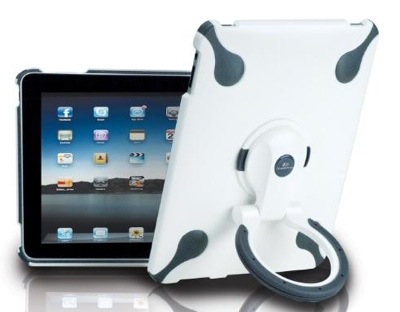By Rick Sutcliffe
September is supposed to be back to school, but here in British Columbia of the frozen north, the public school teachers union and the Provincial government are so far away from each other in their contract positions that the mediator they consulted walked away from the dispute because his involvement had no prospect of success.
It doesn’t help that after a previous government gave the union a sweetheart deal on class size and conditions the current one first tore the contract up then lost a lawsuit over the matter. An appeal seems unlikely to succeed, so expect the government to legislate the union back to work by mid October or so. Meanwhile, no prospect of back-to-school technology sales here, especially to the families of teachers in the public K-12 system.
The union executive needs to restrain its desire to control the classroom and moderate its salary demands, while the government needs to recognize that class composition, even more than class size, is a serious issue that must be addressed. More than one or two “special needs” students in a regular class pretty much destroys it as an educational opportunity–quite the opposite of the good intentions of social engineers who decreed that since their theory says all students are the same they must be all lumped together in the same environment and expect the same outcomes. NOT.
Oh, and a second NOT to the idea of online learning as a replacementy. Not bad for adults for a few courses, but without virtual theatre classrooms, not sufficiently interactive for good teaching or learning. The Spy’s recommendation–one course per subject and one course per year–maximum in both categories.
University is another matter. At Trinity Western, where the Spy tools in the ivory basement, enrolment seems to be up sharply (no “is” until you see the whites of their chequebooks). This reverses a long-term trend, and renews hope that our small school can re-start the computing science major we had to suspend for lack of students a few years ago. First year programming has over 30, which is a good sign. The Spy plans to teach Programming Language Design next semester, featuring Swift and Modula-2 R10 as examples of where the state of the art is now and where the rest of the programming world will soon be going. Y’all come now.
Not all universities will see increased enrolment this year or the next few, as there are fewer high school graduates, and the well of applicants created by the big institutions decreasing admissions standards to maintain enrolment has now run dry, as there is no more “down” to go. Look for a further general decline and threats to the existence of some smaller schools.
iAnnounce iXYZ
Meanwhile, Apple prepares for announcement day, although much of the content, including parts, pictures of the finished product, screen sizes, etc., are already well-known, courtesy of supplier and assembler ileaks. Still, iCook has an ace or two up his sleeve, the Spy thinks. This column, though a couple of days late because of the labour day weekend (including a birthday party for one-year-old Gregory Sutcliffe), has no hard news and eschews speculation, so by all means circle a week from now, September the ninth on your calendar, but don’t lose any sleep over it, don’t expect that everything Apple announces will be purchasable within a few weeks or even a month of that day, don’t expect all the rumours to be substantiated, don’t expect everything to come in this one product release announcement, and do assume at least one surprise.
Most likely to succeed–the new iPhone/iPod Touch(?), which well sell in the hundreds of millions. Lower volumes can be expected on new iPads, and iWatch–if Apple decides to do the latter. Least likely to be introduced–even if content issues can be resolved, which seems unlikely–and to make buckets of money if it is, would be a radically new iTV. On the bubble are health and home automation hardware, which Apple may leave to others, though the former might be incorporated into a wearable to create a broader market for what otherwise is at best a marginal niche product in the status symbol category.
Least likely to get a personal “buy” from the Spy–the iPad and the iPhone, in that order. He’s a writer. Writers need plenty of screen real estate and a workhorse full-sized keyboard. Even a portable has to have desktop accoutrements when he sits down at home or office. Likewise, he’s a language guy and programmer. He needs high end CPU power. ‘Nuff said on the iPad–he’s not against them, just has no use for one, and declining sales figures seem to confirm his views.
And, after the Rogers debacle of a few years ago, he will never again become involved in a long-term phone contract. He might consider a phone again if he buy get one unlocked, not tied to network, and on a pay-as-you-go cancel-without-notice plan. Otherwise, a new and larger iPod Touch is just the ticket–should Apple choose to make one, which is by no means assured.
IBM
The Spy notes much speculation concerning the strategic partnership between Apple and IBM–ranging from “it’s a dud” to “when will they merge?”
Again a NOT–to both. There is enough of a culture clash to prevent an outright merger between two so dissimilar companies, even though they are more complementary today than at any time in the past. OTOH, that very complementarity might make this partnership work at arms’ length where so many similar arrangements in the past–including ones between these same two–have failed to produce anything of value.
IBM isn’t in the PC business any more, and is rumoured to be looking for a buyer for the server division as well. An Apple that manufactures computing devices and sells primarily at retail to individuals, and an iBM that makes essentially no products but consults with and markets to the enterprise are a good theoretical fit.
However, don’t forget the Spy’s Third Law The practice of theory never matches the theory of practice. Good intentions only might pave a road to more profits for both, but there’s a saying about that, too. Final argument: a merger or purchase by Apple might make sense for the iBM patents, but not otherwise. Meanwhile, iBM-compatible now means Mac, iPad, iPod, and iPhone. Who’d ‘a thunk it. Bonus for extra credit: what is a “thunk”?
iLowerTech
Sometimes advances in technology usability are made by rethinking something simple. Yes, a better mousetrap will sell. So will a better tape measure, though not a better typewriter. A local (but just across the line into the US of A) company has re-thunk this humble bit of technology and produced several innovations rolled out in half a dozen models.
Three rivets, heavy-duty tape, built-in pencil sharpener, metric (true 32) and/or Imperial units and/or left/right handed, journaled tape, and a note pad on the side are constitute small changes that add up to the best tape measures the Spy has ever owned–by a country kilometre. He was given a combo metric/Imperial model and bought the true-32 left/right metric model–perfect for cabinetry.
Manufacturer FastCap of Ferndale WA makes and sells a wide variety of innovative products, principally for carpenters and cabinet makers. The company name is a nod to their screw caps–not a press-in, but a peel and stick, available in a wide range of wood grains, as is their matching edge banding . Check out their website and order a catalogue, or visit either their factory and showroom or one of many retailers. You won’t likely buy a competing product again–certainly not anyone else’s tape measure.
And, unlike many North American technology companies, nearly all their products are manufactured here–the only exception being the aforementioned tape measures, though they are working on changing that. BTW, the Spy thinks outsourcing hardware manufacturing and software development has run its course, and has proven itself a failed experiment in both categories. Time to insource. Are you listening, Apple? Bring the jobs back home.
FastCap is also an advocate and practitioner of lean development and management. The whole tech industry could learn something from this. You don’t throw resources at a problem to make it go away. You plan to make problems go away and then you acquire more resources from a better bottom line. Check it out.
iDrill
On a similar note, the Spy has previously given bouquets to Bosch for its line of 18V Lithium cordless tools. In the last year or two, competitors had passed Bosch in terms of power and quality, by moving to 20V and/or brushless motors, which can deliver more torque with less electricity. However, in recent months Bosch has met the challenge by quietly replacing most of the tools in this line with brushless models, and upgrading the batteries from 1.5 and 3 Amp-hours to 2 and 4, respectively. Since the Spy was happy enough with the former line, he need not upgrade, but the changes should give Bosch a leg up on the competition. Superb quality. An enthusiastic buy.
And, competition is the watchword in this market as the cordless tool makers cut prices to jockey for market share and visibility. Look for bargains as margins are cut to the bone and older models are cleared out at sometimes ridiculous prices. What tools should be in every cordless workbag?–a light duty drill, an impact driver, a heaver hammer drill, a jigsaw, six-inch circular saw, and a reciprocating saw (which the Spy calls a wrecker’s saw but uses for tree pruning on distant portions of his acreage). There is also an angle grinder, an impact wrench, medium-duty drills, and a right-angle drill plus a separate line of heavier 36-volt hammer drills. The Spy’s wish list here includes a telescoping chain-saw pruner and an orbital sander.
Next month: A fall round up on Apple’s announcements and whither the company from here.
–The Northern Spy
Opinions expressed here are entirely the author’s own, and no endorsement is implied by any community or organization to which he may be attached. Rick Sutcliffe, (a.k.a. The Northern Spy) is professor of Computing Science and Mathematics at Canada’s Trinity Western University. He has been involved as a member or consultant with the boards of several community and organizations, and participated in developing industry standards at the national and international level. He is a co-author of the Modula-2 programming language R10 dialect. He is a long time technology author and has written two textbooks and nine novels, one named best ePublished SF novel for 2003. His columns have appeared in numerous magazines and newspapers (paper and online), and he’s a regular speaker at churches, schools, academic meetings, and conferences. He and his wife Joyce have lived in the Aldergrove/Bradner area of BC since 1972.
Want to discuss this and other Northern Spy columns? Surf on over to ArjayBB.com. Participate and you could win free web hosting from the WebNameHost.net subsidiary of Arjay Web Services. Rick Sutcliffe’s fiction can be purchased in various eBook formats from Fictionwise, and in dead tree form from Amazon’s Booksurge.
URLs for Rick Sutcliffe’s Arjay Enterprises:
The Northern Spy Home Page: http://www.TheNorthernSpy.com
opundo : http://opundo.com
Sheaves Christian Resources : http://sheaves.org
WebNameHost : http://www.WebNameHost.net
WebNameSource : http://www.WebNameSource.net
nameman : http://nameman.net
General URLs for Rick Sutcliffe’s Books:
Author Site: http://www.arjay.ca
Publisher’s Site: http://www.writers-exchange.com/Richard-Sutcliffe.html
The Fourth Civilization–Ethics, Society, and Technology (4th 2003 ed.): http://www.arjay.bc.ca/EthTech/Text/index.html
URLs for items mentioned in this column
FastCap: http://www.fastcap.com/
Bosch: http://www.boschtools.com




